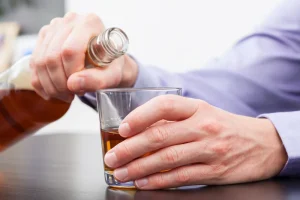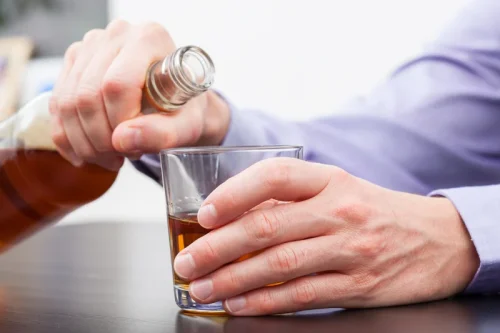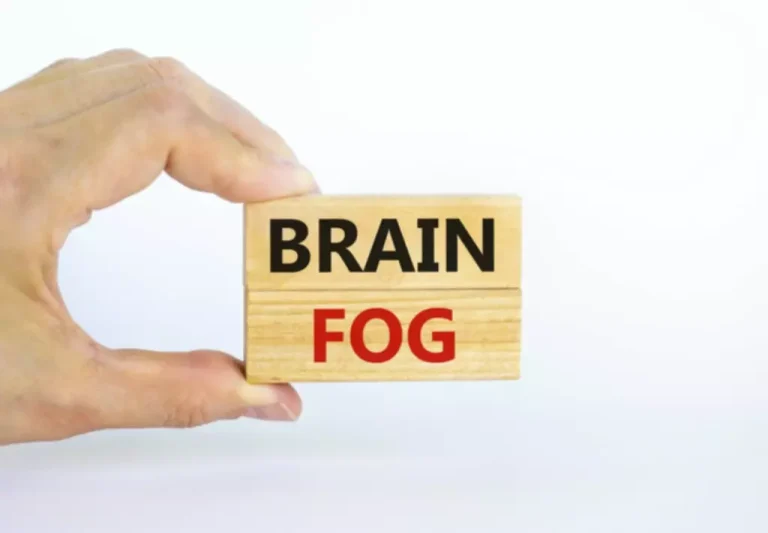
But if you have feelings of anxiety that are constant, overwhelming, or affect your daily life, there are things you can do, and support that is available to help you manage. It initially creates feelings of relaxation and reduced inhibitions. Over time, regular drinking can lead to mood swings, depression, and anxiety. Alcohol impairs judgment and decision-making abilities, potentially increasing risky behaviors. Studies show a high prevalence of anxiety among alcohol-dependent individuals.
Alcohol and anxiety – the vicious circle
CBT helps individuals identify and change negative thought patterns and behaviors. Therapists may use exposure therapy to gradually reduce anxiety responses to alcohol-related triggers. Proper hydration is essential for managing alcohol-induced anxiety. Alcohol is a diuretic, causing increased urination and dehydration.

Symptoms and Types of Anxiety
Dizziness or lightheadedness may occur, especially when standing up quickly. Alcohol use disorder (AUD) is a chronic brain disease characterized by compulsive alcohol use, loss of control over intake, and negative emotional states when not using. AUD can range from mild to severe, impacting personal relationships, work, and overall quality of life. However, if there is a chance that you are physically or psychologically addicted to alcohol then you should not attempt to stop drinking without professional support.

How can you prevent panic attacks after drinking?
Alcohol use disorder is a pattern of alcohol use that involves problems controlling your drinking, being preoccupied with alcohol or continuing to use alcohol even when it causes problems. This disorder also involves having to drink more to get the same effect or having withdrawal symptoms when you rapidly decrease or stop drinking. Alcohol use disorder includes a level of drinking that’s sometimes called alcoholism.
- And, by the way, had actually developed OCD (obsessive-compulsive disorder).
- While dopamine increases immediately after drinking alcohol and temporarily makes you feel good, when the inebriation has faded, whatever symptoms that were being avoided rebound.
- Specific support is also available if you need help with your drinking.
- Additionally, alcohol affects neurotransmitter levels in the brain—the chemical messengers responsible for how we think, feel, and behave.
Do You Need to Stop Drinking?
In either case, learning how to manage your panic attacks can help you continue along your path toward recovery while improving your mental health. Stopping drinking can also cause you to experience some emotional withdrawal symptoms. You might notice that you feel https://ecosoberhouse.com/ more anxiety than normal, which can often feel like a panic attack is occurring.

A support system will help you navigate severe symptoms of alcohol withdrawal, make sure you’re getting plenty of rest and eating well, and keep you on the recovery track. While many people manage to stop drinking without any long-term side effects, it is important to note that your experience may differ from those of other people you know. Treating your recovery as an individual journey is important, and finding the right people to guide you to sobriety can help you stay comfortable as you quit drinking. I’ve spent the last seven years researching and understanding alcoholism, addiction, and how people get sober. can alcohol cause panic attacks Additionally, I examine the way mental and physical health as well as our relationships with others impact the reasons people drink and their role in maintaining sobriety long-term.
Once your body learns to function normally without alcohol in your system. Every morning, I would check that damn stove five or six times before leaving. On bad days, I would leave my apartment and go back up to check once more. I could not shake the feeling that I had left the gas to my stove on and was going to come home to a destroyed apartment.
- Nevertheless, this is one reason it is important to seek treatment for panic disorder or ongoing panic attacks.
- While many people manage to stop drinking without any long-term side effects, it is important to note that your experience may differ from those of other people you know.
- This means that cutting out alcohol can help – but often further action is required in order to take full control of your condition.
- But it’s unknown why a panic attack occurs when there’s no obvious danger present.
- If you begin to experience the symptoms of a panic attack, then you can use one or more coping strategies to help you make it through them.
- Many individuals seeking treatment for panic attacks have a history of alcohol dependence, highlighting the interconnected nature of these mental health issues.
- It affects brain chemistry, particularly GABA, a neurotransmitter that normally has a calming effect.
- Many people also report experiencing thermal sensations, including chills or hot flashes, during a panic attack.
- Generalized anxiety disorder involves chronic, exaggerated worry about everyday life.
- Bottom line, if you’re going to treat your anxiety and depression with medication, you especially do not want to continue drinking.
People with anxiety disorders may also have a substance use disorder. In fact, 50% of people receiving treatment for alcohol use disorder also live with an anxiety disorder. Alcohol may be a temporary, unhealthy way to relieve anxiety and forget about your underlying stressors; however, using alcohol does not erase these underlying triggers. Additionally, symptoms of anxiety will still be lurking around the corner as the underlying triggers have not been properly addressed and treated.
